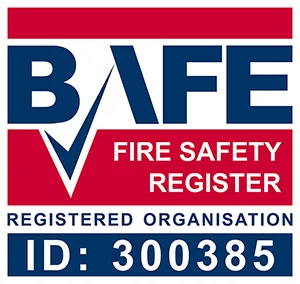It perhaps isn’t surprising to learn the Government is reporting that house burglaries fell by 20% during 2020.
Given that we’ve all been subjected to stay-at-home lockdowns throughout much of the year, one unplanned positive to take from this is the big drop in the number of break-ins. Indeed, estimates suggest over £100 million has been sliced from the criminal fraternity’s income.
But now, as the country takes the first tentative steps towards getting back to work, being out and about with friends and family, as well as contemplating staycations and maybe even foreign holidays, there are concerns that this could spark a spike in domestic burglaries. Empty houses mean more opportunities for thieves.
How to protect your Home
To counter the potential increased burglary threat, here are 10 things you can do to ensure your home is as burglar-proof as it can possibly be.
1) Start by securing your boundaries
If you can discourage burglars from venturing beyond the perimeter fences or hedges, then you have achieved your objective.
Make sure outside gates are securely locked and that hedges are sufficiently tall to prevent easy entry. But, at the same time, they shouldn’t be too overgrown to shield a burglar from a roadside view.
And don’t leave items lying around in the garden, like ladders or tools, which could help a thief gain entry. Make sure stuff like this is stored away in garages and well-secured sheds.
2) Lock your doors and windows properly
Poor locks, or no locks at all, provide thieves with an open invitation. Make sure doors are fitted with sturdy, reliable locks. And not just on front doors – if anything, side doors are more vulnerable as they are less visible.
Even so, locks do have their limitations. Cylinder locks, which are commonly found on uPVC, composite and aluminium doors, are especially prone to lock snapping. Even standard Yale locks aren’t that difficult to open from the outside.
For additional frame strengthening, it is worth considering London Bar or Birmingham Bar locks, as well as hinge bolts and reliable window locks, especially for older period properties.
For ground floor windows, protective grilles are another option for added protection. Certainly, don’t leave them open when you are out – and lock them up before you leave. It might sound obvious, but it’s an easy and common mistake – especially if you are in a hurry.
And don’t leave keys under mats or flowerpots, if you can avoid it. Burglars will check the most obvious places for an open invitation.
3) Moving house? Then change the locks
As the new occupant of a property, you will probably have no idea how many sets of keys the previous owners would have circulated. Who has these and where they may be could be anybody’s guess. So, it’s always advisable to start with a clean slate. It might be a pain to arrange but change the locks - regardless of the age of the property.
4) Install a burglar alarm or CCTV. Use technology.
If a burglar can see that you have a security alarm installed, this will add a significant layer of protection to your home. Thieves will always prioritise an undefended property, rather than run the risk of setting off an alarm. If you have an existing alarm in place, make sure that it is properly serviced and looks as though it is in use. If it’s covered in mildew and doesn’t look as though it’s been touched for years on end, it may give the impression it doesn’t work.
Working in tandem with an alarm system, CCTV can also provide a powerful deterrent. Burglars prefer to stay out of sight. If they think they are going to be picked up on CCTV, the likelihood is that they will stay away from your home. Increasingly, homeowners are turning to this option. It can be quite expensive – but it could pay in the long run.
Technology such as smart doorbells or WiFi-enabled alarm systems can also help you stay one step ahead of the thieves. With a video doorbell, for instance, you can see anyone approaching or at your door – direct from your smartphone. You needn’t be anywhere near the property at the time.
5) Are your doors strong enough?
A super secure lock is all well and good, but if it is attached to a knackered old door, one hefty boot could kick it down. So, make sure your doors are of good quality. PAS 24 certificated doors, frames and windows are advised. PAS is the test standard introduced by the British Standard Institute (BSI) as a minimum level of enhanced security for doors and windows. It is recognised by Secured By Design (SBD), an official UK police initiative.
6) Make it appear the property is occupied
Two things to avoid – not having any lights on after dark or having a single light that switches on at the same time every evening. Both will provide an obvious clue that the property is empty. Have multiple lights connected to a timer. Alternatively, a smart alarm system with vacation mode settings will switch lights on and off at various times, suggesting someone is at home.
During the daytime, make sure curtains and blinds are open. And, if you leave the car at home when you go to work, ensure the car keys are tucked away in a drawer, out of view. Key sets left lying around near a door, or worse still in a door, and they could be snared by a burglar.
7) Don’t advertise on social media that you are away on holiday
These days, using our phones to take pictures or make videos on our phones are everyday events. When we are on holiday, especially, it seems the perfect time to share our fun experiences with friends on Facebook.
But, as tempting as this may be – and something you might not give a second thought to – if this is spotted on social media by the wrong people, you could be laying yourself open to a break-in. At the very least, check your privacy settings on social media before letting everyone know you are in Greece for a fortnight! Or don’t post the pics until you are back.
And don’t divulge to taxi drivers the duration of your trip, where you are going, or that the house will be empty. Excited small talk could be costly.
8) Store confidential documents in a safe
Make sure that paperwork like bank statements, personal data and valuables are stored safely in a professionally fitted lockable cabinet. There is no point in having a safe that can be removed in its entirety from the property.
9) Make sure your insurance is adequate and hasn’t lapsed
Finally, be prepared. In the unlikely event that you do get burgled, it’s essential that you have sufficient insurance cover – both for buildings and contents. Damage to windows and doors would be covered by the former, whilst items such as TVs, computer equipment, furniture and clothing by the latter. It’s worth shopping around and sometimes it pays to change regularly, as most insurers offer big discounts to new customers.
These are all simple steps that you can take to stay safe. If you need any further advice, then we are here to help. Our nationwide team at Justice Fire & Security have huge experience when it comes to home protection. That’s why our extensive range of domestic security products has been designed with you in mind.
For a no-obligation quotation, call us today on 0845 468 0927.








